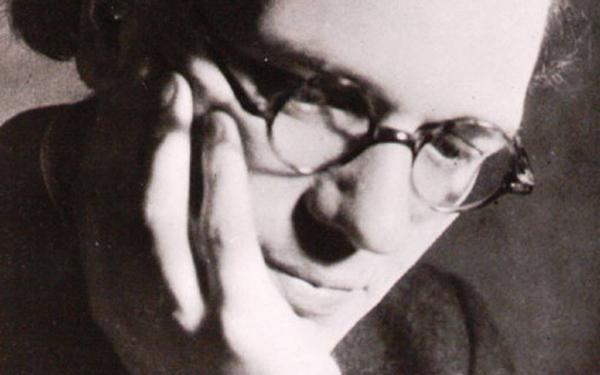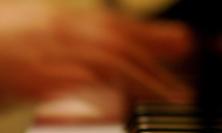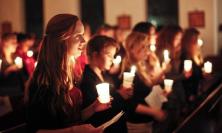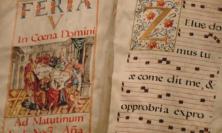
On the 100th anniversary of the birth of the Catholic composer Olivier Messiaen, Peter Bannister discusses the religious vision expressed through Messiaen’s works, and the social and political context in which his music was composed. Are the critics who label some of his works as ‘propaganda’ justified in doing so?
2008 has been an auspicious year for the music of Catholic composer Olivier Messiaen. Although the celebration of musical anniversaries can seem something of a facile solution for artistic programmers scratching their heads for ideas, the world-wide enthusiasm spawned by what would have been the 100th birthday of this self-styled ornithologist, rhythmatician and ‘theological musician’ has been truly exceptional. His output has been given the kind of posthumous exposure granted to few, if any, twentieth-century composers, having been the subject of festivals and conferences from Australia and Japan to the major cultural capitals of Europe and North America; there can now surely be little dispute as to the canonical status of works such as the Quartet for the End of Time, Turangalîla or the opera St Francis of Assisi in the history of Western classical music.
This enthusiasm for Messiaen seems both remarkable and somewhat surprising. In the context of Western society’s general suspicion of any art with a ‘message,’ the mere idea that explicitly religious music can be celebrated is by no means a given, and talking vaguely about a ‘return to spirituality’ in postmodernity is not necessarily a sufficient explanation of the success of the Messiaen centenary. It is one thing for audiences to enjoy bathing in the general ambience of slickly marketed recordings of Gregorian chant, Karl Jenkins’s Adiemus or the Hilliard Ensemble’s Officium (none of which I would wish to denigrate in themselves). Appreciating a piece such as Messiaen’s Meditations on the Mystery of the Blessed Trinity based on the most forbiddingly arid argumentation of St Thomas Aquinas is quite another.
If plaudits for Messiaen during 2008 have been plentiful, dissenting voices are perhaps all the more significant given their rarity. In the case of that unrepentant enfant terrible of the critical establishment Norman Lebrecht, not only is such a voice dissenting but also strident. In his September internet column for La Scena Musicale entitled ‘Why Messiaen doesn’t raise my spirits’[1], Lebrecht targets very specific criticism at the composer for the way in which his Catholic convictions are embodied in music which he describes as ‘plain old propaganda’, ‘not even theology dressed up as art.’ The cause of his indignation seems to be the unflagging and jarring optimism of Messiaen’s religious vision, especially when it seems to be tied to an exclusivist posture in which there is no salvation outside the church. For Lebrecht, Messiaen clearly sins unforgivably by his apparent refusal to engage with the suffering of the contemporary world and to look at Christianity self-critically in its light. For him, Messiaen preaches
that there is only one truth, one way to redemption, the road to Rome. Take it, or be damned. This, to a citizen of our multicultural century, to a descendant of French Jews who endured crusades, Church-driven expulsions and genocide, is frankly unacceptable if not downright offensive.
Blind faith belongs in church, not in the concert hall where those who doubt or deny are excluded. The artist’s job is to ask questions, not to affirm.
This is of course a powerful statement on the nature of artistic vocation which should not be glibly brushed aside; Lebrecht’s objection to Messiaen’s musical affirmation echoes the famous dictum of Theodor Adorno (who interestingly lectured alongside the French composer at the holy of holies of avant-garde music set up shortly after World War II, the Darmstadt International summer courses for New Music) that ‘to write a poem after Auschwitz is barbaric.’[2]
Being myself a Christian scholar of Messiaen’s music I feel obliged both to take this trenchant critique seriously and to sketch out a case for the defence. An acquaintance with the facts of Messiaen’s life does give credence to some of Lebrecht’s points. On the specific issue of Messiaen’s relationship to Christian anti-Semitism, it must be conceded that the composer demonstrated a socio-political naïveté bordering on the irresponsible. This is of course a delicate subject which should be treated with requisite critical nuance. If recent scholarship by writers such as Yves Balmer[3] and others has revealed the links of Messiaen’s father Pierre to the anti-semitic far right in inter-war France, such views should not automatically be imputed to his son (who effectively expunged his father from his autobiographical statements, which focus almost exclusively on his sense of gratitude towards his mother, the poetess Cécile Sauvage). Equally, it might be crediting Messiaen with a political awareness of which he shows little evidence to accuse him of conscious opportunism in accepting a teaching position made vacant by the eviction of Jewish professorial staff from the Paris Conservatoire during World War II. What is less easy to forgive is the fact that years later, despite all the available evidence as to the Nazi appropriation of Wagnerian music drama, Messiaen the teacher was unable to understand his Jewish students’ resistance to the study of the composer of the Ring cycle. Still less is it possible to overlook his upholding of the traditional and shameful Christian charge of deicide levelled against the Jews in his interviews with Claude Samuel published in the 1980s given that the Catholic Church had officially repudiated the position in 1965 in Vatican II’s text Nostra Aetate. Messiaen may have been on the cutting-edge as a composer, but here he emerges as being clearly and culpably behind the times.
Likewise it is not difficult to see how the overtly devotional elements of Messiaen’s concert music might stick in Lebrecht’s throat. There is undoubtedly an apologetic aspect to his introduction of openly Christian subject-matter into the secular context of the concert hall in works such as the Visions of the Amen for two pianos or the Quartet (to which some critics objected at the time of their composition for the same reasons as Lebrecht in 2008). Challenging the validity of modernity’s clear boundary between the sacred and the secular is an integral part of Messiaen’s strategy and a provocative one. There is simply no way round the fact that Messiaen sees his whole life’s work as a composer as an act of worship to the Triune God of classical Christian belief. His artistry is put at the service of communicating the truth of the mysteries of faith, the dogma of the Catholic Church to which he is enthusiastically and unfashionably committed. To this extent, it is fair to say that Messiaen’s is not the anguished, self-tormenting spirit of, for example, a Benjamin Britten, with whom Lebrecht seems more inclined to sympathize on an artistic level. Messiaen is unlikely to be our hero if we are looking for music which expresses the tragedy of much twentieth-century European experience through overt lament. If we essentially view the role of the composer as that of a chronicler, it might be better to look elsewhere than to the organ loft of a Paris church for musical witnesses to history as ‘nothing but ruins, only mountains of corpses’, to quote the famous words attributed by Solomon Volkov to Dmitri Shostakovich[4].
However, I would like to argue that Messiaen’s music, for all its optimism, is nonetheless a response to suffering on a different level. At a recent symposium devoted to his music at Southern Methodist University in Dallas at which I privileged to be a speaker, I was shown compelling video footage of West African Christian worship taken by one of my hosts, the course director of SMU’s Sacred Music programme Michael Hawn. During his visits to various African churches, he and a colleague were surprised to see that the local community’s collective worship systematically excluded lament and enquired as to why this should be so given the grim reality of much of life in contemporary sub-Saharan Africa. The response was as simple as it was profound: ‘our suffering is so near the surface that we do not need to sing about it’. I believe that biographical evidence supports the view that the same is true of Messiaen’s outlook. Like Shostakovich, Messiaen saw the modern world as ‘atrocious and full of crimes’, as he put it to Claude Samuel.[5] No less than his Russian counterpart, he was certainly not ignorant of human suffering. As Lebrecht admits, he personally endured incarceration and hunger in a German POW camp in 1940-41 (the fact that this was not a concentration camp should not be used to belittle Messiaen’s experience). Equally significant but less well-known is the subsequent collapse of his family life under the weight of the agonizingly drawn-out mental deterioration of his first wife Claire Delbos over nearly two decades. It is perhaps precisely his first-hand awareness of problems for which earthly existence provides and can provide no resolution that Messiaen concentrates on a hopeful vision of God’s eternity, with Christ’s resurrection functioning as an anticipation of the glorious transformation of all things promised by the New Testament. Albert Schweitzer’s words that ‘my knowledge is pessimistic, but my willingness and hoping are optimistic’[6] could well be those of Messiaen. It may be that he cannot be completely exonerated from the charge of a lack of Schweitzer’s own social activism (although in later life Messiaen confessed that he saw his own work as nothing in comparison to that of Mother Teresa of Calcutta). His focus on a theology of glory likewise has its limitations; a balanced diet of contemporary religious music needs as much the austerity of Arvo Pärt’s Liturgy of Repentance, the critique of James MacMillan’s Confession of Isobel Gowdie or the sombre meditation of nuclear arms in Steve Reich’s The Desert Music as it does the sumptuous celebration of creation’s beauty in Messiaen’s From the Canyons to the Stars. Yet the attentive listening which his music seems to provoke suggests that the meaning which countless audiences have found in his works cannot simply be reduced to an acquiescence to false consciousness, a capitulation to religious narcosis.
When properly contextualized historically and biographically, Messiaen’s belief in the divine promise for the final and irrevocable healing of this world does not necessarily have to be regarded as a form of escapism, despite the apparent lack of social engagement in his music. In an essay entitled Prophetic and Apocalyptic Politics published in 2002, Harvard Old Testament Professor Paul Hanson makes a distinction between prophetic and apocalyptic politics that may be helpful in this respect. He notes that, if the prophetic tradition of calling for social justice should undoubtedly be seen as a central component of the Biblical witness, Judeo-Christian apocalyptic, “other-wordly” thinking can also be regarded as a legitimate response to historical circumstances in which all efforts at reform appear pointless. Having cited as examples the rule of Antiochus IV Epiphanes (2nd century B.C.E.) as providing the background to the visions of the Book of Daniel and persecution under the Roman emperors Nero and Domitian which shaped the Revelation of John, Hanson’s third example of the historical manifestation of seemingly apocalyptic evil is the terror of the Third Reich. It seems clear that Messiaen’s own eschatology needs to be interpreted in the light of the tumultuous epoch which engendered it, a period which in the case of France ought not to be seen as starting with the military defeat of 1940 but rather with the cataclysm of Verdun a generation earlier. Making the point that the apocalyptic seer’s calling differs from that of the prophet, Hanson comments that there can be times when communities, ‘like the mortally wounded soldier suffering excruciating pain, need a more potent antidote than the normal remedy. Their need can be addressed only by apocalyptic visions assuring them that all appearances notwithstanding, God remains sovereign and God’s righteous reign will prevail.’[7] Messiaen would seem to be just such an apocalyptic seer, one whose brand of musical antidote is certainly nothing less than potent.
I would also like to take issue with the view that Messiaen is the purveyor of ‘propaganda’ on the level of the Czech choral setting of the Communist Manifesto to which Lebrecht compares the music of St Francis of Assisi. It is true that Messiaen is unusual in setting texts which differ from the more habitual language of worship in being unashamedly theological. However, art is not instrumentalized by him in the same way as music was conformed to the dictates of the Politburo in the Soviet empire. Messiaen’s theology never functions as a substitute for craftsmanship. At all times a concern with musical design for its own sake is evident which abhors artistic shortcuts made in the name of ideology. Indeed some of the most convincing pieces in his output are those based on purely musical poetry without any religious subtext, such as the extraordinary song-cycle Harawi or the hauntingly bleak Curlew which concludes the monumental Catalogue of Birds for solo piano.
Messiaen’s music is always grounded in traditional compositional technique honed to the highest degree. It follows that that its appreciation is not dependent on the listener’s adherence to Christian doctrine. The remarkable success of his works in Japan is particularly striking proof of his ability to communicate musical meaning to a culture far-removed from the Judeo-Christian tradition. In response to Lebrecht I would contend that this is consistent with a musical and spiritual ecumenism latent even within Messiaen’s early compositions with their exploration of non-Western modes and rhythmic patterns. The composer’s detractors may seek to belittle this facet of his music in pointing out that the extra-European elements(such as his reference to Hindu rhythms, Tibetan chanting or Peruvian folklore) rely more on second-hand knowledge acquired via encyclopedias than from first-hand acquaintance with other cultures, particularly during the early stages of his career. However, to reduce such elements to superficial ‘exoticism’ in consequence would seem unfair. Messiaen’s recognition of the universal human sense of the sacred was genuine and was reinforced by increasingly extensive travel during his mature years. By the 1970s, Messiaen had clearly arrived at an anthropological stance resembling that of Karl Rahner, based on an intuition of the infinite as a dimension of human experience transcending divisions of creed and culture. For all its doctrinal themes, his music appeals first and foremost to a primal sense of wonder and awe at the mystery of the world that Messiaen sees as lying at the heart of the religious impulse. Expressing his underlying view of sacred art in a lecture in 1977, he was able to affirm the grandeur of the Egyptian pyramids or the Cambodian temple of Angkor Wat alongside Notre-Dame or Chartres Cathedrals as expressions of the divine majesty.[8] This is consistent with his statement made five years earlier during a pre-concert discussion in Düsseldorf that
In the present age of ecumenism - as, furthermore, in every era - we shouldn't attach too much importance to religious differences. Everyone - Orthodox, Catholic and Protestant Christians, Israelites, even Buddhists - is seeking God, finding God. My work is addressed to all who believe - and also to all others.[9]
What is intriguing about Messiaen is the way in which this generosity, although it may verge on syncretism for some tastes, never compromises his commitment to the historic faith of the Christian church. Indeed, there is a case for saying that it was precisely his unwavering commitment to Christ as ultimate truth that allowed him such freedom in acknowledging the validity of ‘penultimate’ truths in all their cultural and historical forms. It is unfortunate that Norman Lebrecht has not sensed this true catholicity in Messiaen’s work, for here it would seem that his example points to an important principle which can lead us forward in the difficult, sometimes painful but indispensable endeavour of interfaith dialogue. As other pioneers of that risk-laden but essential conversation such as Pope John Paul II, Brother Roger of Taizé or Rabbi Abraham Heschel have demonstrated, the deepening of our engagement with our own faith traditions is not contrary to openness to others, but rather constitutes the very life-blood of fruitful encounter.
Peter Bannister is a Franco-British composer, performer and musicologist; his large-scale choral and orchestral work Et iterum venturus est in memory of Olivier Messiaen, commissioned by Soli Deo Gloria (Chicago) has just received its first performance at the church of La Trinité in Paris.
[2] Theodor Adorno, An Essay on Cultural Criticism and Society, in Prisms, trans. Samuel and Shierry Weber (Cambridge, MA, MIT Press 1967), p.34.
[3] See Yves Balmer, « Je suis né croyant… » Aux sources du catholicisme d’Olivier Messiaen (paper presented at the 2006 ‘Music and Religion in the 30s’ conference at Montreal University), available on-line at http://hal.archives-ouvertes.fr/docs/00/29/04/42/PDF/Balmer_-_Je_suis_ne_croyant._.pdf
[4] Solomon Volkov, Testimony – The Memoirs of Dimitri Shostakovich, New York: Harper & Row, 1979, p.3. The on-going controversy as to whether these words are those of Shostakovich or Volkov in no way detracts from their impact.
[5] Claude Samuel, Permanences d’Olivier Messiaen, Aix-en-Provence, Actes Sud, 1999, p. 294.
[6] Albert Schweitzer, Out of my Life and Thought, (Baltimore, John Hopkins University Press 1998), p. 279.
[7] Paul D. Hanson, Prophetic and Apocalyptic Politics, in The Last Things : Biblical & Theological Perspectives on Eschatology, ed. Carl E. Braaten and Robert W. Jenson (Grand Rapids, Eerdmans 2002), p. 58.
[8] Olivier Messiaen, Conférence de Notre-Dame, Paris, Leduc 1978.
[9] Quoted in Almut Rössler, Contributions to the Spiritual World of Olivier Messiaen, trans. Barbara Dagg and Nancy Poland, (Duisburg, Gilles und Francke 1986), p. 51.





